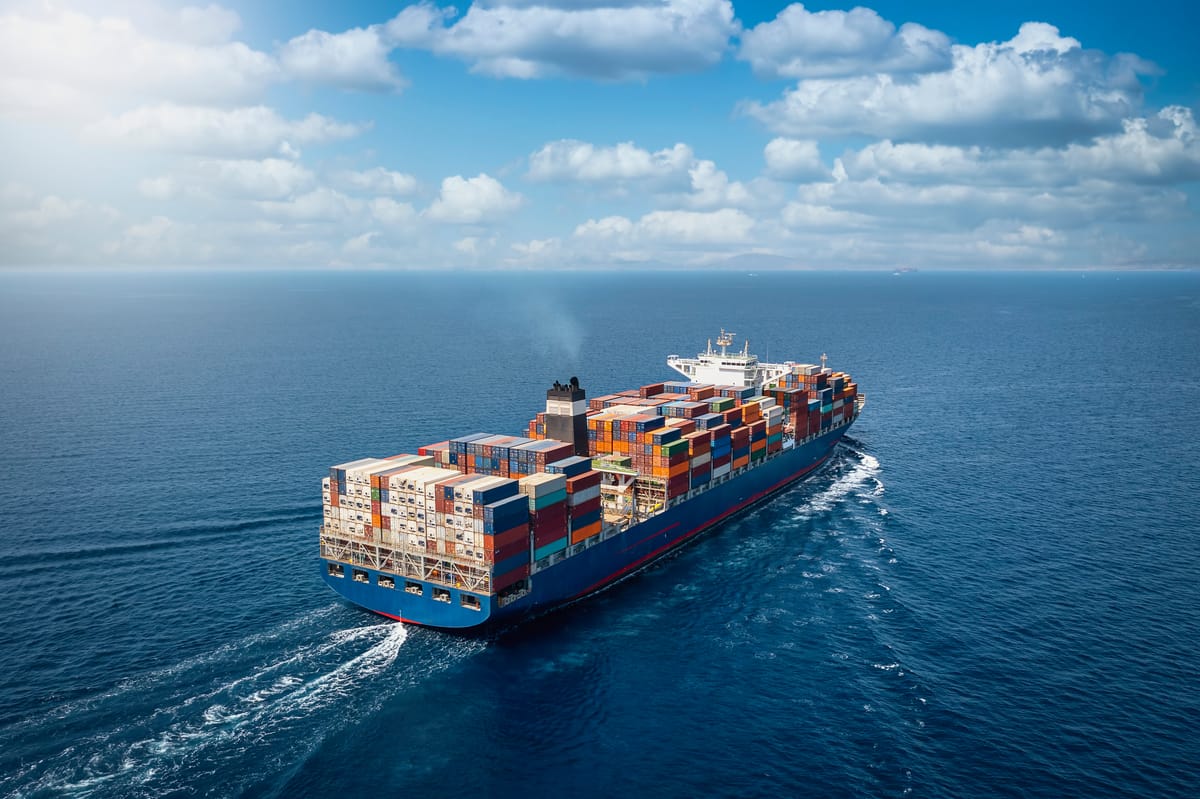Navigating the 90-day tariff pause
Plus: Could EV, hybrid fees aid Highway Trust Fund?

Is trucking a political football? One industry expert is pointing fingers at Congress and major OEMs, saying they're hurting the industry's innovation.
Meanwhile, a flurry of trucking exits is occurring, and the carriers that remain are scrambling for used trucks and figuring out how to navigate the 90-day tariff pause.
And, one driver gets really creative in taking a shower on the road.

What we're reading about. A new pilot program helps low-risk former inmates get a CDL and then connects them with trucking companies. Will it help ease driver retention woes, or will trucking execs be hesitant to employ people with a record?
"Showoff." Watch how one owner-operator shined up his $800 Peterbilt truck with the dash hanging out, transforming it to literally earn the nickname "Showoff."
Eat, sleep and everything else. A truck can basically become a driver's home when they're on the road for days. It's for sleeping, for having dinner and maybe even creating a makeshift shower like this driver did!
False hope. When you think you've found a parking spot... but alas.

Are truck OEMs, lawmakers to blame for slow industry progress?
The Trump administration and Congress have reversed many Biden-era emissions rules, but one industry expert is also pointing fingers at truck manufacturers.
Craig Segall, former deputy executive officer and assistant chief counsel of the California Air Resources Board, writes that OEMs such as Volvo and Daimler have been working behind the scenes to kill EV-related rules. The reason: margins are bigger on diesel trucks.
Segall argues that Congress shouldn't bend to OEM lobbying and cut rules, because it only makes the trucking industry and supply chain fall further behind in innovation.
"This industry deserves better than to become a political football for the White House, Congress and truck manufacturers," Segall writes.
Why this matters: Electric trucks involve a tricky web of regulations, manufacturers, infrastructure and much more. Each player has a role in advancing (or not) the adoption of EVs in trucking. But when large, powerful businesses make the rules according to their preferences, small business truckers may not be on the winning end.
Get more details at The Hill.

MASS EXODUS: Number of trucking biz leaving market highest in a year
UP NORTH: Canadian Trucking Alliance wants fleet feedback on English proficiency
BIG SEIZE: Officer discovers 86 pounds of cocaine in truck in traffic stop
DEMAND SPIKE: Buyers compete for limited supply in used truck market

"Having the opportunity to coach younger drivers, even seasoned drivers, on the safest way to drive to prevent those accidents—that's super exciting."-Tim Guy, RoadSafe Traffic Systems
Every profession has its ups and downs, but playing a role in making operations safer and saving lives is rewarding, according to Guy. He and other transportation professionals shared their career paths and what they like most about their day to day in this video.

Budget bill adds EV, hybrid fees to fund Highway Trust Fund
A budget measure, which has passed in the House, includes yearly registration fees of $250 for electric vehicles and $100 for hybrids. The revenue from those fees would go toward the Highway Trust Fund.
Why this matters: Supporters of fees for EVs contend that these vehicles produce wear and tear on the roads but don't contribute to repairs with gas taxes. The Highway Trust Fund has been at risk of running out of money due to insufficient revenue coming in. (Transport Topics)
How trucking can navigate the 90-day tariff pause
Bookings on ocean carriers from China to the U.S. are already surging after the two countries agreed to temporarily lower tariffs, and that means freight could soon come pouring into the ports, requiring trucking firms to be prepared to meet demand. But experts advised, now isn't the time to scale. It's about being proactive, managing shipper relationships and locking in reliable lanes, because the freight surge will likely pass.
Why this matters: Jim McCullen, of Century Supply Chain Solutions, described the trucking industry as "feast or famine." While there may momentarily be an influx of freight and business, carriers need to be smart about capacity. Those who scale up too much may risk overcommitting their resources. (Tech.co)
Court sides with California in AB5 battle
AB5, a California law that determines whether workers can be classified as employees or contractors, was upheld by the U.S. Court of Appeals for the Ninth Circuit. The Owner-Operator Independent Drivers Association has long argued that the law puts a burden on truck drivers leased on to carriers.
Why this matters: With a good portion of the trucking industry using an owner-operator model, AB5 calls that into question. OOIDA has fought against the California law, claiming it violates parts of the Constitution. Meanwhile, California's attorney general said the law is essential to prevent exploitation of workers. (Land Line)

New app aims to streamline trucking at Port of Savannah
The Georgia Ports Authority rolled out a new app to make operations smoother at the Port of Savannah. The app can alert drivers to gate hours, tell them which entry gate is closest to the container and simplify paperwork with digital tickets.
Why this matters: Drayage operations can involve a lot of waiting time and paperwork for truckers and fleet owners. Any tech advancements that streamline the process would be a welcome sign to fleets operating in the sector. (The Trucker)

Thanks for reading today's edition! You can reach the newsletter team at editor@theinsidelane.co. We enjoy hearing from you.
Interested in advertising? Email us at newslettersales@mvfglobal.com
The Inside Lane is curated and written by Shefali Kapadia and edited by Bianca Prieto.





Comments ()